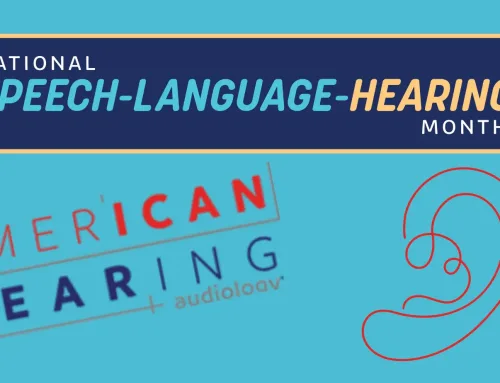It is commonly known that a baby’s attachment with their caregiver plays a critical role in children’s survival and healthy adaptation1. Relational connections continue to play an impactful role on your health throughout your life. A key component of being able to experience meaningful relationships is the ability to communicate. Hearing is a critical part of successful communication.
What happens with our ability to form meaningful relationships when we struggle to hear? Communication becomes difficult and all too often relationships become strained. As a hearing care provider, I see patients come in who have been struggling to hear their friends and family and eventually give up. When relationships grow distant due to communication challenges it often leads to social isolation.
You may be wondering how hearing loss and social isolation become a health risk? Since hearing involves sound traveling to your brain, that use of brain activity plays a vital role in exercising the brain. When hearing loss occurs it is brain stimulation that gets impacted. Many studies have been conducted to understand hearing loss and its relation to other serious health issues such as dementia, diabetes, heart disease, depression, and fall rates in older adults.2 Consider the picture3 below as it maps out one way that hearing loss impacts the brain:

Hearing loss is not an issue limited to people of a certain age. It can happen at any age and its’ effect on the brain starts as soon as the hearing loss takes place. Loud concerts, fireworks and some loud machinery are just a few examples of noises that can cause immediate hearing loss.
In 2018, an Ohio State University research team monitored the brain activity of participants age 18 through 41. Yune Lee an assistant professor of speech and hearing science at Ohio State, observed participants listening to increasingly complex sentences hoping to measure if human brains work harder to comprehend more complex messages. Hearing tests were performed on participants before the monitoring began. The research team was surprised to discover that young adults with subtle hearing loss were observed to have altered brain function in ways typically only seen in older adults. “Hearing loss, even minor deficits, can take a toll in young people – they’re using cognitive resources that could be preserved until much later in life. Most concerning, this early hearing loss could pave the way for dementia.” said Lee.
On average it takes 10 years for people with hearing loss to finally do something about it. Untreated hearing loss not only affects your quality of life, it also affects the brain’s ability to remember common everyday sounds. When your hearing nerves are not being stimulated they lose their function and no longer channel sound signals to the brain. The brain ‘forgets’ these sounds over time and is unable to understand them.
Get more hearing questions answered here.
Here is the good news, there is something you can do to help combat the effects of hearing loss. When you get treatment for hearing loss by wearing hearing aids it restores the sound stimulation that your brain needs. The simple “therapy” of restoring sound is a form of exercise for your brain. Fortunately, treating hearing loss allows the brain to relearn how to hear, this ability is known as neuroplasticity. Proper hearing aid use correlates with improved outlook, mood, mobility, independence, communication, and social interaction.
Contact American Hearing + Audiology for an appointment at one of our top-rated hearing centers.





